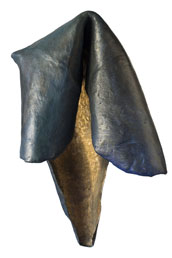Fiction Review: Illuminating the Infinite
Bhog and Other Stories
by Ankur Betageri
New Delhi: Pilli Books, 2010
107pp
Think of Bhog and be glad. And of India. In Ankur Betageri’s debut collection of short stories, the reader has a chance to meet characters that are by no means fringe elements but which have been largely invisible in Indian fiction in English. We have, most of us, heard of the argumentative Indian – even encountered one – but how many of us have met with the allegorical Indian? Or the rare Bear of Indian ambition? Or the ambulatory aspirations of a continent’s other, static dreams? Or the bathetic ghost of one girl called Malavika – who is intrinsically lovable despite her own difficulty with the notion of love?
In Bhog and Other Stories we meet all of these personas and more in the austere prose of Betageri. To be sure, there is pertinent writing, superbly packaged, emerging from India, by writers who engage their craft in indigenous Indian languages, by writers who write directly in English or French, and by translators who fan across the field of the genres bringing to the world, gems of Indian literature.
The impression that this reviewer gets of a large portion of these efforts is one of refinement, extreme refinement, as of white crystalline sugar forced into cubes. Betageri’s writing on the other hand conveys a sense of individuality all its own. As if, in a vast store offering cubed and white sugar under various brand names, one should come upon a small section offering brown, granulated sugar. As if, in a music store stocked with wind and string instrument music, one should discover a slim rack of percussion.
Bhog is a collection of fourteen short stories in as many styles, with reading kinesis at practically fourteen speeds. Some succeed more than others and this is to be expected. A few fail but not dismally. There is not a dire tale. The collection opens with The Armour, a short piece from which the poet in Betageri is first glimpsed. It is followed by The Big Bicycle, another extended metaphor, which in turn is followed by Atmaram Harbhaji, a surreal compte rendu of sorts. The stories eventually lead to Bhog, the title story, and beyond. Herein is the longest of the stories and also, arguably from the way it reads, the most difficult for the writer to write.
Betageri’s greatest achievement in this collection may very well be his unveiling of the world within India as well as the India to be found in the rest of the world. Literature resists simplifying reductionisms, however. The range of results Betageri aims at are many and no one reading may tell us all or how much he has succeeded or failed. What Betageri has done, beyond disputation, is to offer in these stories a theory of mind and reality which challenges the faux familiar notions of Indianness with a certain coetaneous take on the perceptions and realities of India and the world.
The stories recognize a need for healing in our fractured world. The stories speak of the value of vulnerability and the inconsequence of machismo. The stories matter. They let us into the mind of a new generation in the world’s largest industrial democracy, which, interestingly, is also a world with a long history of epic literary achievement and depth. The writing here may not coruscate but it is very clever writing nonetheless in the way it tackles caste, capitalism and human consanguinity. The writing is bold even if callow in places. The vision is daring which informs the mosaic of the world in Bhog.
Another aspect of the cleverness in the collection is the manner in which the author deploys his sense of occasion. Bhog is a word with many manifestations in Indian life. Be you Sikh or Hindu, Gujarati or Banjara, you will encounter Bhog, but not in the same way. Indeed, the experience of each individual or group may be so disparate as to make valid any interrogation of the identity of what is being experienced. These stories are not religious but they help to throw literal light on a problem assayed by intellectuals like Balagangadhara, author of a central text in contemporary religious studies, The Heathen in his Blindness.
Without saying so in so many words, Betageri helps us in our understanding of the idea of the infinite, continuing a long tradition of thought and expanding a universe of discourse with new forms, telling the Indian tale in English and translating thoughts through prisms of Bangalore into the world. The text here tasks the reader but they are worth the investment. In portions, the poet and thinker in Betageri makes reading tedious, the short story is a popular form but the voice of the thinker is loud in some of these stories. Also, one would have wished that the author allowed the sap to mellow some more before serving but alas no. There is urgency to this offering which almost defeats the prodigious talent behind the shaping of the stories.
Bhog and Other stories is material. In it you will find fair distillation of a photographic sensibility which is attentive to detail, much as the cover art of the book suggests. You will find India without the stereotypy; you will challenge your settled notions of time and heroism, of courage and submission. You will find yourself, once again, in the trail of the princes of Serendip, and you will be glad.





No Comments so far ↓
There are no comments yet...Kick things off by filling out the form below.